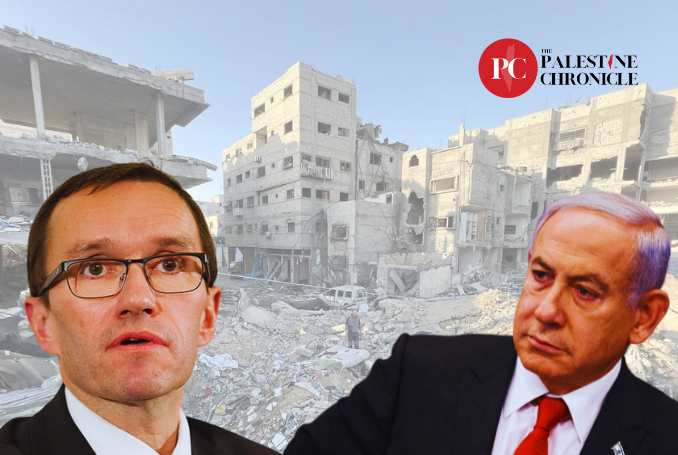
“Regional peace is connected … but there is a root conflict that connects to all of them which is the absence of a solution to the Palestinian question.”
Norway’s Foreign Minister Espen Barth Eide has stressed that “an integrated Palestine” which includes the West Bank and Gaza Strip should be part of a long-term solution for the current conflict in the region.
“We need a two-state solution … We want an integrated Palestine comprising West Bank, Gaza, and relevant parts of Jerusalem,” Eide said during a panel discussion titled ‘Conflict Mediation in a New Era’ at the 22nd Doha Forum in Qatar on Saturday.
At the @DohaForum Panel on ‘Conflict Resolution in a New Era’ alongside PM & FM @MBA_AlThani_ of 🇶🇦 and FM @EspenBarthEide of 🇳🇴. #DohaForum
— Dr. S. Jaishankar (@DrSJaishankar) December 7, 2024
Noting that “We need to think about the immediate but we also need to think about the long-term because you cannot do either one or the other,” Eide said, “the horror is so deep now that we cannot go back to 6 October last year.”
“That was not a stable lasting situation. It was like a minefield. People might not have stepped on the mine, but it was about to explode. It did explode,” he stressed.
On the question of the incoming US administration, Eide said that “because president-elect (Donald) Trump was very vested in the Abraham Accords, I think the message now from this region is that that is perfectly doable. There might actually be a major deal but it has to happen with Palestine.”
H.E. Espen Barth Eide, Minister of Foreign Affairs of Norway, sharing insights on multilateral diplomacy at #DohaForum. @EspenBarthEide pic.twitter.com/onAdbusqvo
— Doha Forum (@DohaForum) December 7, 2024
The Abraham Accords is a US-brokered plan from 2020 that led the United Arab Emirates (UAE), Bahrain, Sudan, and Morocco to normalize relations with Israel.
Regional Peace
The foreign minister said this was “the time to think big, to think (of a) political two-state solution, to think peace for Israel, peace for Palestine.”
“Regional peace is connected because all these different conflicts, they are not the same, it’s not one conflict, but there is a root conflict that connects to all of them which is the absence of a solution to the Palestinian question,” stressed Eide.
To Understand Israel’s Ambitions, You Need Only Listen To Netanyahu’s UN Speeches
In May, Norway, along with Ireland and Spain announced its official recognition of the state of Palestine and established full diplomatic relations with it.
Ongoing Genocide
Flouting a UN Security Council resolution demanding an immediate ceasefire, Israel has faced international condemnation amid its continued brutal offensive on Gaza.
Currently on trial before the International Court of Justice for genocide against Palestinians, Israel has been waging a devastating war on Gaza since October 7.
According to Gaza’s Ministry of Health, 44,664 Palestinians have, to date, been killed, and 105,976 wounded.
Moreover, at least 11,000 people are unaccounted for, presumed dead under the rubble of their homes throughout the Strip.
QNN: Causalities have been reported after Israeli warplanes targeted a home belonging to the Shaheen family in the Al-Tuffah neighborhood, east of Gaza City. pic.twitter.com/qgk7pnfdEG
— The Palestine Chronicle (@PalestineChron) December 7, 2024
Israel says that 1,200 soldiers and civilians were killed during the Al-Aqsa Flood Operation on October 7. Israeli media published reports suggesting that many Israelis were killed on that day by ‘friendly fire’.
Palestinian and international organizations say that the majority of those killed and wounded are women and children.
Famine and Displacement
The Israeli war has resulted in an acute famine, mostly in northern Gaza, resulting in the death of many Palestinians, mostly children.
The Israeli aggression has also resulted in the forceful displacement of nearly two million people from all over the Gaza Strip, with the vast majority of the displaced forced into the densely crowded southern city of Rafah near the border with Egypt – in what has become Palestine’s largest mass exodus since the 1948 Nakba.
Later in the war, hundreds of thousands of Palestinians began moving from the south to central Gaza in a constant search for safety.
(The Palestine Chronicle)
